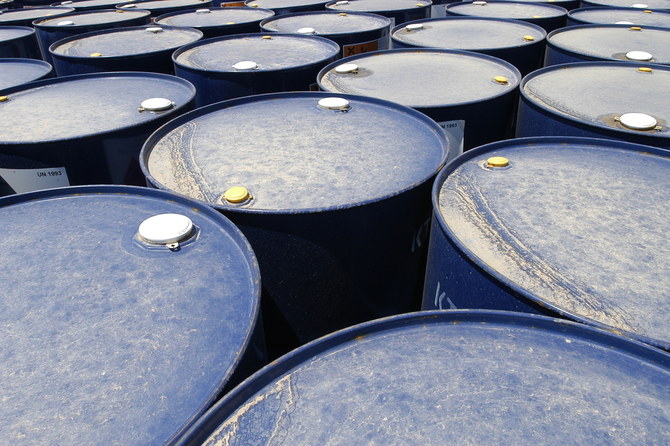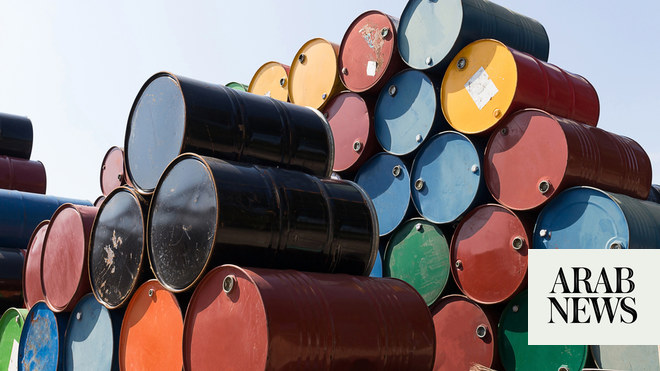
SINGAPORE: Oil prices fell on Thursday after a larger-than-expected jump in US crude inventories, raising concerns about demand in the world’s largest economy and top oil consuming nation, according to Reuters.
Brent crude futures fell 34 cents, or 0.4 percent, to $81.26 a barrel at 6:37 a.m. Saudi time, while US West Texas Intermediate crude futures declined 38 cents, or 0.5 percent, to $76.26 a barrel.
Both contracts lost more than $1 a barrel on Wednesday, pressured by the rise in US crude inventories, as refining dropped to its lowest levels since December 2022.
The Energy Information Administration said US crude inventories jumped by 12 million barrels to 439.5 million barrels in the week to Feb. 9, far exceeding analysts’ expectations in a Reuters poll for a 2.6 million-barrel rise.
While the stock build up raised concerns among traders about demand, some analysts said the move was largely driven by lower refinery utilization rates, especially with BP’s 435,000 barrels per day Whiting plant in Indiana down.
“The continued outage at BP’s Whiting refinery will have contributed to lower run rates, along with some other refinery maintenance. Lower refinery run rates meant that gasoline stocks declined,” the analysts said.
On the supply side, Kazakhstan said it will compensate for its oil overproduction in January within the next four months, in line with its commitments as a member of the Organization of the Petroleum Exporting Countries and its allies, known as OPEC+.
Iraq also said it will review its oil production and address any excess output above its OPEC+ voluntary cuts in the coming four months, if found.
“This comes ahead of OPEC’s March meeting, where the group plans to decide whether to extend supply curbs into the second quarter,” said ANZ analysts in a note on Thursday, adding: “Any signs that extension looks unlikely would weigh on sentiment across the oil market.”
However, the EIA data also showed that gasoline and distillate stocks fell more than forecast. Gasoline stocks fell by 3.7 million barrels to 247.3 million barrels versus expectations for a 1.2 million-barrel draw.
Distillate stockpiles declined by 1.9 million barrels to 125.7 million barrels, compared with expectations for a 1.6 million-barrel drop.
Fuel demand is holding up, helped by a return to pre-COVID levels of air travel, JPMorgan analysts said.
“Our high frequency demand indicators are showing oil demand increasing by 1.6 mbd in the first two weeks of February vs. January,” JPMorgan Commodities Research analysts said in a note, pointing to a pick-up in travel in China during the Lunar New Year holiday.












